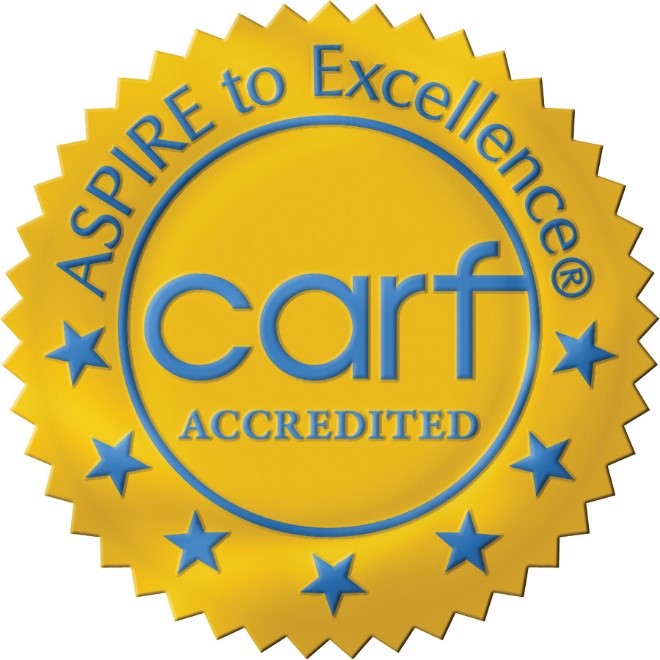Before making a decision, we often consider value. It could be something as small as checking the expiration date on a carton of milk before pouring a glass.
Or, you might be making a big purchasing decision, like a car. It’s likely that you will consider the value of the vehicle before you buy it. You will look at the car’s history, read reviews, and ask your family and friends for their opinions.
When it comes to the biggest decisions in life – the ones that affect your health, you want to make sure you choose a provider of value. Some care providers get accreditations to improve their standards and ensure that clients receive the best care. One accreditation is CARF.
What is CARF?
CARF stands for the Commission on Accreditation of Rehabilitation Facilities. It is an international nonprofit that promotes quality rehabilitation services. The organization is an accreditor of health and human resources. It helps other organizations improve their services, demonstrate value, and meet internationally recognized standards.
Why is CARF accreditation important?
CARF accreditation is beneficial to both organizations providing rehabilitation services and the individuals they serve.
For an organization, CARF accreditation offers the opportunity to continually improve its services. CARF standards focus an organization’s efforts on providing the best services possible. Organizations have access to the expert advice from CARF and the experience of similar organizations.
For an individual in need of rehabilitation services, choosing a CARF accredited organization ensures that the agency uses client-focused, up-to-date practices. CARF accredited organizations focus on helping each client achieve their individual recovery goals.
*The information in this article is intended solely to provide general information on matters of interest for the personal use of the reader, who accepts full responsibility for its use. This article should not be used as a substitute for consultation with professional legal, medical, or other competent advisors.

